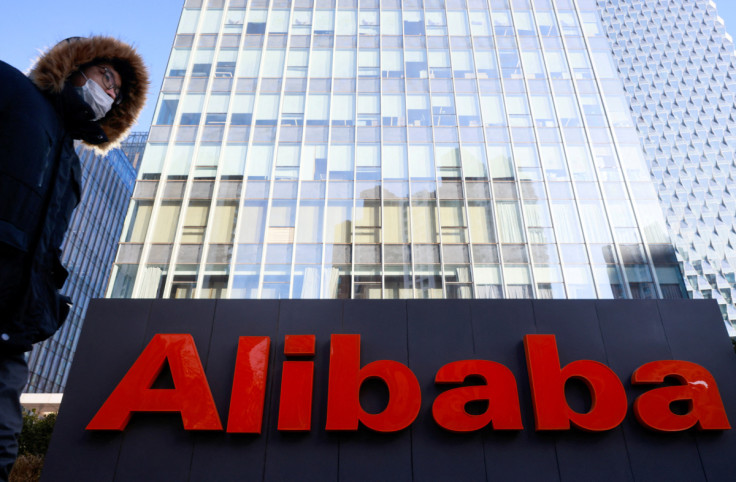Alibaba announces ChatGPT-style AI model to compete with Microsoft, Google, OpenAI
Alibaba said it will roll out its generative AI model across all of the company's apps.

Alibaba Group's cloud-computing unit, Alibaba Cloud recently unveiled its ChatGPT-style product dubbed Tongyi Qianwen. Notably, the Chinese online marketplace company confirmed at the 2023 Alibaba Cloud Summit that the technology will be integrated into all Alibaba products in the "near future."
Regrettably, Alibaba did not reveal an exact timeline. With former Google CEO Eric Schmidt raising concerns over the use of AI chatbots like ChatGPT and Google Bard, it is still unclear whether the technology will arrive in the US. Still, it has been confirmed that Tongyi Qianwen works in Chinese, as well as English.
Furthermore, the technology will be integrated into Alibaba Group's internal communication software DingTalk. According to the company, the technology will come in handy for carrying out multiple tasks such as taking notes in meetings, creating business proposals, and composing emails. Aside from this, Tongyi Qianwen will be available on an Alexa-like AI smart speaker called Tmall Genie.
🚀Alibaba unveils its ChatGPT rival, #TongyiQianwen set to integrate with Tmall Genie and office chat software. pic.twitter.com/itUG4fZIdE
— Cam.ai (@CamAndrews99) April 12, 2023
Also, the company states the Tongyi Qianwen-powered Tmall Genie will offer "more dynamic and vivid conversations with users." For instance, it is capable of developing and telling stories to children, offering travel tips, and creating healthy diet recipes. Furthermore, it can suggest background music for a workout.
Alibaba makes its foray into the generative AI chatbot space
The artificial intelligence company behind ChatGPT, OpenAI enables other companies to create AI-powered plugins. In addition to this, OpenAI has been offering the ChatGPT API for a while now. Apparently, Alibaba is prepping to follow in OpenAI's footsteps by offering a similar bespoke service. However, its API is still in Beta testing at the moment.
BREAKING🤖 Alibaba announces Tongyi Qianwen, a ChatGPT-style AI set to integrate across its businesses, starting with DingTalk and Tmall Genie. "Seeking answers by asking a thousand questions" - maybe that's what Jack Ma did during his vanishing act! 😅 With generative AI on the… pic.twitter.com/HAmUqJ3vZN
— The AI Plug 🔌 (@TheAIPlug) April 11, 2023
Alibaba wants to provide Tongyi Qianwen to its clients who are interested in creating their own custom LLMs (Large Language Models). The company believes this will help boost their client's business productivity. Alibaba Cloud Intelligence CEO Jingren Zhou said Tongyi Qianwen will help them to "expand their expertise and capabilities while unlocking more exciting opportunities through innovations."
It is worth mentioning here that Tongyi Qianwen is based on the company's own Tongyi model, which is a combination of numerous AI models. Alibaba also assured its AI bot will have multimodal capabilities including the ability to generate videos and images. Meanwhile, Microsoft has already added Bing AI Image Creator to its Edge browser for free.
The future of Tongyi Qianwen, other AI bots in China
Since ChatGPT is banned in China, some Chinese firms are working on substitute AI technology. These firms will be competing with the likes of Microsoft's Bing AI, Google Bard, and OpenAI's ChatGPT. There is a slew of other upcoming home-grown alternatives, according to a report by Tom's Guide. For instance, Baidu released the Ernie Bot, which works like ChatGPT and also generates images.
However, these Chinese AI models aren't likely to garner popularity in the West given that they are not integrated with reliable search engines like Google or Bing. Notably, Chinese gaming company NetEase is gearing up to add its own AI technology in its upcoming massively multiplayer online game(mobile MMO) "Justice Online Mobile". Players will be able to create text and audio using AI features.
Amid the skyrocketing popularity of AI chatbots, some industry executives and artificial intelligence experts including Elon Musk have recommended a six-month pause in developing more powerful AI systems than GPT-4 in an open letter. Apparently, the Tesla CEO believes developing more intelligent AI could pose a risk to society.
However, 86Research's analyst Charlie Chai thinks Beijing's new rules are likely to slow down the AI development progress in the country. Moreover, Chai stated that it will be tough for foreign companies to provide AI services in China. This could also benefit domestic companies, he added. Moreover, China is known for tightly censoring its internet and its tech firms obey the rules, especially when it comes to sensitive topics.
© Copyright IBTimes 2025. All rights reserved.






















